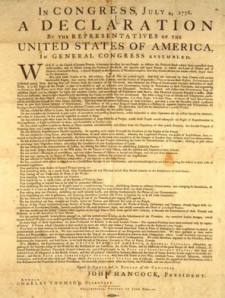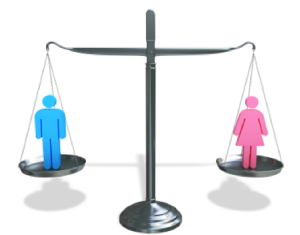Congressional Carte Blanche
“The Commerce Clause”
Part 2
MODERN INTERPRETAIONS OF THE COMMERCE CLAUSE
The major modern interpretations of the meaning behind the commerce clause come from two professors who wrote fifty-eight and seventy-four years ago, respectively.
The first was Walton Hamilton who in 1937 wrote, “The Power to Govern; The Constitution – Then and Now.”
He argued the commerce clause must be reinterpreted to grant Congress authority to regulate the entire national economy. He was obviously pro-Roosevelt as his efforts were aimed at giving credence and legitimacy to what Roosevelt had already done and was continuing to do.
The second, writing in 1953, was William Crosskey. He was a law professor at the University of Chicago who wrote, “Politics and The Constitution in The History of The United States.”
It was his arguments, more so than Hamilton’s, that drastically altered the legal landscape when interpreting the commerce clause.
He argued that:
- commerce meant the whole economy, the whole system of exchange, the whole of interrelated gainful activities;
- that “among the several states” did not mean ‘between’ but rather it meant ‘throughout’ the several states;
- that the commerce clause authorized Congress to regulate all gainful activity throughout the nation – both inter-state and intra-state commerce.
It is these arguments that led to further arguments that flatly ignored not only the clause itself, but the legal understanding of commerce. The question was no longer is it a “commercial” interaction, but merely whether it was an economic “good.”
Modern healthcare and internet arguments fall in this line. If it is an economic “good” then it can be regulated. Therefore it should be regulated.
If the commerce clause grants Congress authority to regulate all gainful activity then the pivotal point truly is what are economic “goods” and what are not.
RULES OF CONSTRUCTION
But that is a flagrant departure from both the original understanding and the text itself.
The original understanding of commerce was briefly outlined above. (Other sources were cited to afford the reader opportunity to search it independently.)
Also noted is that this understanding was so clear it produced virtually no debate in the ratifying conventions. But for future generations, understanding proper interpretation is critical. (Thus ensuring laws made must be necessary and proper.)
Accordingly, there were numerous rules of construction by which a legal document in the eighteenth-century — in this case the Constitution — were both written and interpreted.
A few samples:
- It should be interpreted according to the intent of the makers – or the Ratifiers – this (rather than ambiguous statements before during or after the 1787 convention) is what is called the “Spirit” of the document.
- Every word must have meaning and force. There can be no large or small chunks of meaningless text. This means that the more excess words created by a particular interpretation, the less it could be relied on as accurate.
- If certain things are named, there can be no implication that unnamed things were included.
Of course there are others. Our inquiry concerns mostly the second bullet point. This is also called the Textual Surplus Rule. If a certain interpretation of any one clause renders any other clause unnecessary, then that interpretation is not valid.
(Also deserving of note is that the Common Law was entirely separate from the Lex Mercatoria – or the Law of Commerce. In general terms the Common Law was the law of the land; while the Law of Commerce was the law of water – or of the sea.)
Now to Corsskey and Hamilton. Both interpretations violate the Textual Surplus Rule: if a certain interpretation of any one clause renders any other clause unnecessary, then that interpretation is not valid.
The commerce clause specifically grants (which means it limits) congressional authority to regulate commerce with foreign nations, among the several states, and with the Indian tribes
If Commerce means “all gainful activity throughout the several states then what of the extra words and clauses: foreign nations, indian tribes, bankruptcy, patents and intellectual property, land regulation, coinage clause etcetera.
Surely if the framers meant and ratifiers understood commerce to mean all gainful activity why would they include these other clauses that directly relate to gainful activity?
Such a claim would render them ignorant and shortsighted indeed. The commerce clause alone would have covered these clauses. They would be unnecessary.
Yet they are present. And according to the rule, if any interpretation of the commerce clause renders these other clauses and words as surplus, or essentially negates or nullifies them, then that interpretation cannot be textually sound.
And any one caught consenting to such a doctrine might verifiably be accused of “ruling by whim” — or at minimum desiring to.
THE COMMERCE CLAUSE LIMITED POWER OF FEDERAL GOVERNMENT
To be totally accurate, the commerce clause — intially — increased the power of the federal government. The congress under the Articles of Confederation had no such power. It was the very idea of increases of power the anti-federalists fought against the Constitution and ratifcation for.
However, the grant of commercial regulation was not a plenary (or full) grant of unchecked power.
According to the Lex Mercatoria in the eithteenth-century commerce meant:
- Buying and selling of products made by others
- Associated finance and financial instruments
- Navigation and other carriage
- Intercourse across jurisdictional lines
(We have to remember that one of the most substantial reasons for calling the 1787 convention was to fix the glaring problems with inter-state commerce.)
From this rule of construction alone it is clear the clause did not give power to congress to regulate the entire national economy as Crosskey claimed, and many others claim today.
As we have seen, according to many today there may not be any powers the Constitution has not delegated to the federal government. Common legal recourse of our modern regulatory government is the ongoing interpretation by courts, precedent, and accommodating textual analysis.
In light of this, there are three questions that should dominate any rational and liberty minded individual.
Do the powers of the constitution, especially in view of amendments nine and ten, comprise all the powers the feds say it does?
What are those powers reserved to the states?
Is there a list or basic enumeration we can use as a guide?
Fortunately, as the federalists fought for ratifcation they left a detailed and remarkably consistent record of enumerated powers that would be reserved to the states respectively.
This was done to convince the anti-fed’s of constitutional limits of federal power and as a method to influence them to ratify.
There were many who contributed to this debate. Among whom were Alexander Hamilton, James Madison, James Wilson, Edmund Pendelton, James Iredell, John Marshall, Tenche Coxe, and several other anonymous authors.
Here is a comprehensive list of powers that would be reserved to the States. (This was done through writing and speaking.)
- Training militia and appointment of officers
- Local Government
- Regulation of Real Property
- Regulation of Personal Property outside of Commerce
- Domestic and Family Affairs
- Criminal Law
- Civil Justice
- Religion and Education
- Social Services
- Control of Agriculture
- Control of other Business Enterprise
- Supreme arbiter and interpreter (along with the people) of the Constitution
- Power to invalidate unconstitutional actions of any branch of the federal government
The real value of this enumeration is that it assists us to understand the dividing line between State and Federal power. It also helps us see clearly how much, and what kind, of “aid” the federal government should be doling out to states — or the states should be accepting.
It must be noted that this list does not necessarily reveal intent but it does help communicate the original understanding at the time.
To avoid unacceptable risks of centralization the founding generation decided to expressly reserve exclusive jurisdictional control over certain national concerns to the respective states.
The commerce clause, among others, secured this by limiting the regulatory power of Congress over commerce to foreign nations, among or between the several states, and with the indian tribes.
Therfore, there is no basis for the claim that commerce meant “all gainful activity throughout the nation.”
The commerce clause was designed to give Congress jurisdiction over the Law Merchant – Lex Mercatoria – as it pertained to inter-jurisdictional activities between the states.
This meaning was so clear it produced virtually no objection during the ratification debates – the records are almost silent on discussion over this clause.
In UNITED STATES, PETITIONER v. ALFONSO LOPEZ, Jr. Justice Thomas issued the most sound defense of the limiting nature of the commerce clause.
“The Constitution not only uses the word “commerce” in a narrower sense than our case law might suggest, it also does not support the proposition that Congress has authority over all activities that “substantially affect” interstate commerce. The Commerce Clause does not state that Congress may “regulate matters that substantially affect commerce with foreign Nations, and among the several States, and with the Indian Tribes.” In contrast, the Constitution itself temporarily prohibited amendments that would “affect” Congress’ lack of authority to prohibit or restrict the slave trade or to enact unproportioned direct taxation. U. S. Const., Art. V. Clearly, the Framers could have drafted a Constitution that contained a “substantially affects interstate commerce” clause had that been their objective…”
“Indeed, if Congress could regulate matters that substantially affect interstate commerce, there would have been no need to specify that Congress can regulate international trade and commerce with the Indians. As the Framers surely understood, these other branches of trade substantially affect interstate commerce.”
Now whenever any politician or power pundit claims carte blanche authority for action under the commerce clause, or just laughs and says “are you serious” when asked where authority for action comes from, you will have ample ammo to amend their aberrant claims.
For a more indepth reading of the original understanding of the commerce clause see:
1. Robert Natelson, The Original Constitution: What It Actually Said And Meant


